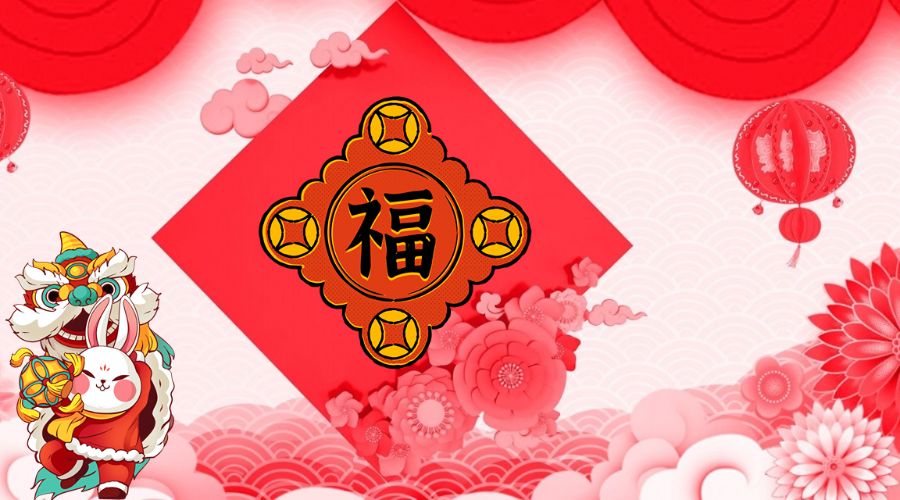
The Spring Festival, is the beginning of the lunar year, the Spring Festival is another name called the Chinese New Year, is China’s most grand, the most lively, the most important of an ancient traditional festival, is also the Chinese unique festival. It is the most concentrated expression of Chinese civilization. Since the Western Han Dynasty, the custom of Spring Festival has continued until today.
春节,是农历的岁首,春节的另一名称叫过年,是中国最盛大、最热闹、最重要的一个古老传统节日,也是中国人所独有的节日。是中华文明最集中的表现。自西汉以来,春节的习俗一直延续到今天。
The Spring Festival generally refers to the New Year’s Eve and the first day of the first month. But in the folk, the traditional sense of the Spring Festival refers to the eighth day of the twelfth lunar month or the twelfth lunar month 23 or 24 sacrificial stove, until the fifteenth day of the first month, which with New Year’s Eve and the first day of the first month for the climax.
春节一般指除夕和正月初一。但在民间,传统意义上的春节是指从腊月初八的腊祭或腊月二十三或二十四的祭灶,一直到正月十五,其中以除夕和正月初一为高潮。
How to celebrate this festival, in thousands of years of historical development, formed some relatively fixed customs, many still handed down to the present. During the Spring Festival, the Chinese Han nationality and most ethnic minorities will hold a variety of celebrations. Most of these activities include offering sacrifices to gods and Buddhas, offering sacrifices to ancestors, refreshing the old and praying for a good year. The activity forms are rich and colorful, with strong ethnic characteristics.
如何过庆贺这个节日,在千百年的历史发展中,形成了一些较为固定的风俗习惯,有许多还相传至今。在春节这一传统节日期间,我国的汉族和大多数少数民族都有要举行各种庆祝活动,这些活动大多以祭祀神佛、祭奠祖先、除旧布新、迎禧接福、祈求丰年为主要内容。活动形式丰富多彩,带有浓郁的民族特色。
On May 20, 2006, “Spring Festival” folk custom was approved by The State Council to be included in the first batch of national intangible cultural heritage list.
2006年5月20日,“春节”民俗经国务院批准列入第一批国家级非物质文化遗产名录。
There is a legend about the origin of the Spring Festival. In ancient China, there was a monster called “Nian”, with long tentacles and a ferocious head. “Nian” years of deep seabed, every New Year’s Eve to climb ashore, devour livestock harm human life. Therefore, every New Year’s Eve that day, the village village race village people fled to the mountains, in order to avoid the “year” animal injury.
春节的来历有一种传说,中国古时候有一种叫“年”的怪兽,头长触角,凶猛异常。“年”长年深居海底,每到除夕才爬上岸,吞食牲畜伤害人命。因此,每到除夕这天,村村赛寨的人们扶老携幼逃往深山,以躲避“年”兽的伤害。
One New Year’s Eve, from outside the village a begging old man. Villagers a panic scene in a hurry, only the village east of an old woman gave the old man some food, and advised him to quickly up the mountain to avoid the “Nian” beast, the old man smiled and said: “mother-in-law if let me stay at home for one night, I will put the ‘Nian’ beast away.” The old woman still continued to persuade, begging the old man smiled without a word. In the middle of the night, “year” beast into the village. It found that the atmosphere of the village is different from previous years: the east of the village, the wife’s husband’s home, the door paste big red paper, the house candle light. “Nian” beast body a shake, a strange cry. Nearly the door, hospital suddenly spread “banging spluttered” Fried sound, “nian” shuddered, again dare not go up. It turned out that Nian was most afraid of red, fire and explosion. At this time, the door of the mother-in-law opened, I saw a hospital wearing a red robe in the old man laughed. “Year” be frightened and frightened, panic fled. The second day is the first day of the first month, the people who came back to see the village safe and sound very surprised. At this time, the old woman suddenly saw the light and hastened to tell the villagers the promise of the begging old man. This matter soon spread around the village, people know the drive “Nian” beast way.
有一年除夕,从村外来了个乞讨的老人。乡亲们一片匆忙恐慌景象,只有村东头一位老婆婆给了老人些食物,并劝他快上山躲避“年”兽,那老人捋笑道: “婆婆若让我在家呆一夜,我一定把’年’兽撵走。”老婆婆仍然继续劝说,乞讨老人笑而不语。 半夜时分,“年”兽闯进村。它发现村里气氛与往年不同:村东头老婆婆家,门贴大红纸,屋内烛火通明。“年”兽浑身一抖,怪叫了一声。将近门口时,院内突然传来“砰砰啪啪”的炸响声,“年”浑身战栗,再不敢往前凑了。原来”年”最怕红色、火光和炸响。这时,婆婆的家门大开,只见院内一位身披红袍的老人在哈哈大笑。“年”大惊失色,狼狈逃蹿了。第二天是正月初一,避难回来的人们见村里安然无恙十分惊奇。这时,老婆婆才恍然大悟,赶忙向乡亲们述说了乞讨老人的许诺。这件事很快在周围村里传开了,人们都知道了驱赶“年”兽的办法。
From now on every New Year’s Eve, every family stick red couplets, set off firecrackers, every household candle light, keep more to stay. Early in the morning, but also walk friends Daoxi greetings. This custom spread more and more widely, and became the most solemn traditional festival of Chinese folk.
从此每年除夕,家家贴红对联、燃放爆竹,户户烛火通明、守更待岁。初一一大早,还要走亲串友道喜问好。这风俗越传越广,成了中国民间最隆重的传统节日。
关于春节的英语作文还有:
【红包Lucky Money】、【最大的节日The Biggest Festival】、【我的新年愿望 My New Year’s Wish】、【在春节到来之前 Before Spring Festival】、【我的压岁钱 My Lucky Money】、【春节 Spring Festival】、【春节禁忌 The Taboos On Spring Festival】、【春节 Spring Festival】
原文链接:https://gpmz.net/blog/guanyuchunjiedechuanshuo/,转载请注明出处~~~